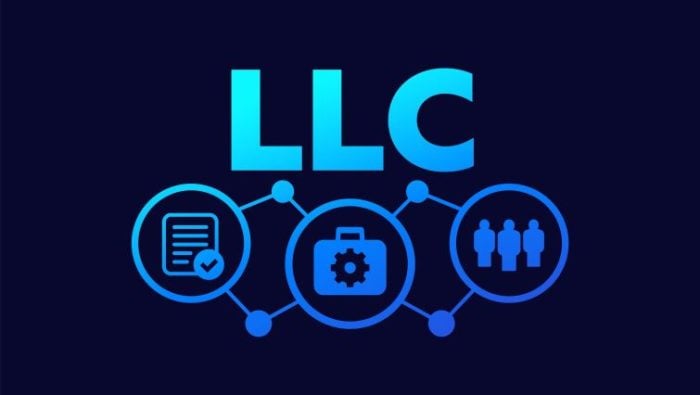3 Ways an LLC Can Protect Your Job Providing Agency
 Publié le 20 July 2024
Publié le 20 July 2024
Business owners concerned about legal liabilities should learn 3 ways an LLC can protect your job providing agency.
No matter which field or industry you’re in, the threat of litigation is very real. We generally live in a litigious society, and that can lead to significant risks for any kind of jobs or career agency. Thankfully, there are practical steps you can take to keep your business safe and secure.
One of the most important ways to protect your business is by choosing the right legal structure. And while there are a number of options to choose from, the most popular option in the United States is the Limited Liability Company, or LLC.
What is an LLC?
To understand what sets the LLC apart, it might first be helpful to know about some of the other options for business structuring.
When you first begin to generate income on the basis of self-employment, through freelance work for example, you are automatically considered to be a Sole Proprietor. What this means is that there is no legal distinction between you and your business; thus, if someone brings a lawsuit against the company, they are really bringing it against you. Sole Proprietorships have many features to recommend them, including overall flexibility, but they do not offer any kind of personal liability protection.
If you decide to make your job providing agency an LLC, you actually do establish a distinct legal entity. This allows you to keep business assets/liabilities separate from personal ones, and thus to shield your personal wealth from litigation and from creditors.
You could go a step further and make your job providing agency a Corporation. While Corporations do offer robust personal liability protections, it should also be noted that they have rigid regulatory requirements. Incorporation is really only recommended if you desire to go public one day, or if you want to bring outside investors into your job providing agency.
How Does an LLC Protect You and Control Costs?
LLCs can help your job providing agency avoid legal liability and contain costs. In fact, there are a handful of significant advantages that the LLC structure can provide. These include:
1) Liability Protections.
As noted above, an LLC provides significant personal liability protections. You can keep your personal assets and liabilities in one pot, totally distinct from your business ones, which means that lawsuits cannot challenge your personal retirement account, family nest egg, or other non-business assets. This allows you to invest in your job providing business in greater confidence.
2) Tax Benefits
Another way in which an LLC can benefit your job providing agency is through pass-through taxation.
Effectively what this means is that, when you are an LLC member, you can simply declare your share of the business profits and losses on a personal tax return, and then pay at your normal tax rate. You do not have to file a separate business tax return, nor do you have to contend with the dreaded “double taxation” that Corporations face.
If you ever decide that it would be advantageous to be taxed on a corporate basis, an LLC grants you that ability, as well.
3) Enhanced Credibility
One additional benefit worth mentioning is that the LLC format confers a particular professional credibility on your company and can boost your brand image. Simply put, going to the trouble of registering as an LLC shows that you take your job providing agency seriously.
Not only does this help you earn the goodwill and trust of your customers and clients, but it can also open some doors to financing, including business loans and lines of credit. In some cases, LLCS can even attract outside investors (though it should be noted that there is not a legal provision for LLCs to sell shares, as Corporations can).
How to Register an LLC
The specific steps involved in registering an LLC vary from state to state in the US — registering an LLC in New Jersey requires different steps than doing so in Texas, for instance, — but here is a general outline.
- Select a name. Your LLC will need a name that is not already in use by another LLC in the area. Your state will likely have a searchable directory you can use to ensure your desired name is up for grabs.
- Appoint an Agent. Every LLC must have a Registered Agent, someone to receive legal documents as your representative. To hire a Registered Agent, consider seeking the best service to start an LLC in your state.
- File paperwork. The document you’ll file with your state is known as the Articles of Organization. You may also need to pay a small filing fee, which can vary from one state to the next.
- Create an Operating Agreement. This is a critical document for minimizing legal disputes, as it outlines the managerial roles of you and your partners. Though not mandatory, it is highly recommended.
Protect Your Jobs Agency with an LLC
To keep your career service agency safe and secure, it’s crucial to use the legal resources at your disposal… and that means starting with LLC registration. Business owners should understand 3 ways an LLC can protect your job providing agency, as it will help keep your organization secure as it continues to grow.
Please note that LLCs only apply to businesses in the United States of America. Be sure to work with a qualified legal expert to check all applicable business laws in your jurisdiction for similar arrangements.







